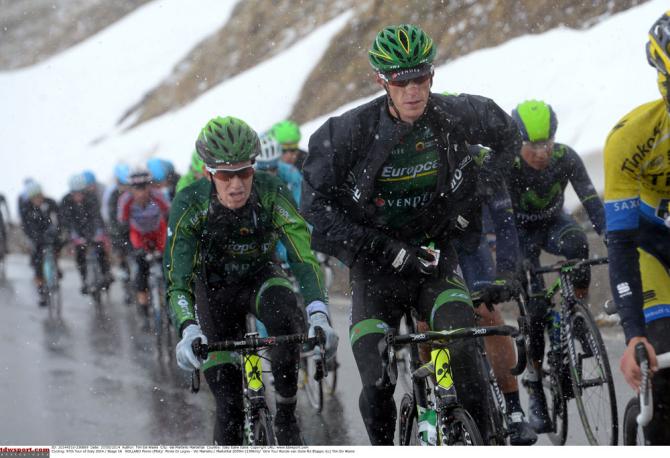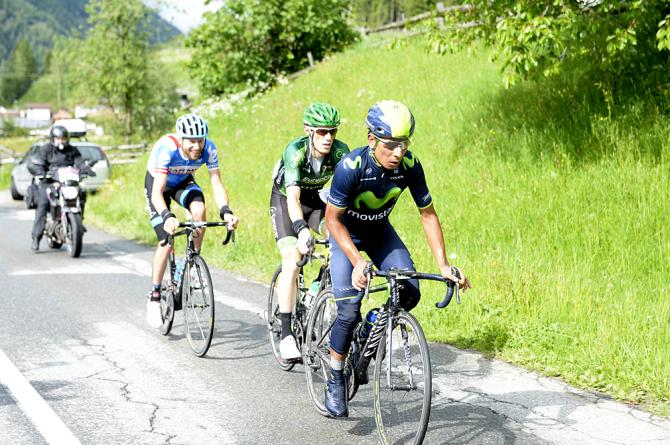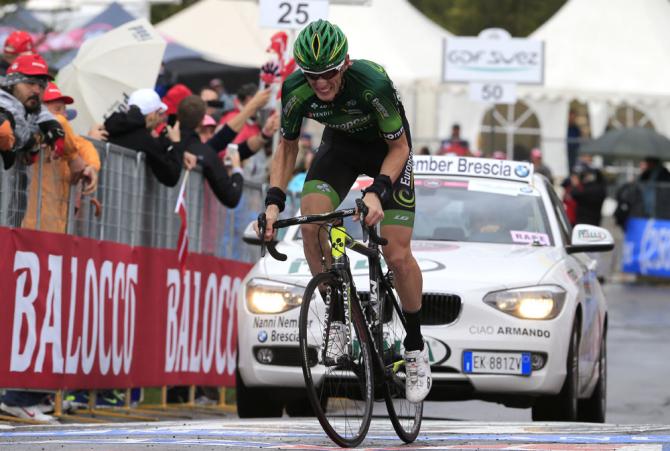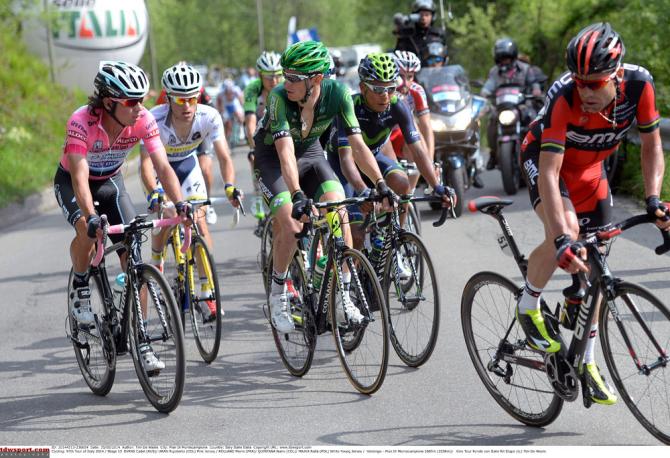Rolland: I didn’t notice any red flag on Stelvio descent
Debate rumbles on at Giro d'Italia




Nairo Quintana may have been the biggest beneficiary but Pierre Rolland (Europcar) appeared to be the catalyst of the contentious break on the descent of the Stelvio on stage 16 that has so radically altered the complexion of the Giro d’Italia.
Speaking on the start line in Sarnonico on Wednesday, Rolland reiterated his stance from the previous day’s finish, insisting that he had not been aware of any suggestion that the race had been temporarily neutralised on the descent of the Stelvio.
“Like I said already, I only heard about this polemic at the finish. Before that I wasn’t aware of anything,” Rolland told Cyclingnews.
Television pictures of the descent of the Stelvio were patchy – there was a considerable gap between RAI’s commentary team reporting that Quintana was ahead and their cameras picking him up – and piecing together the precise chain of events has proved difficult.
Rolland admitted that he had led the pink jersey group through the opening hairpins of the descent but said that Quintana had later come past at high speed, beginning the breakaway in earnest.
“I started the descent of the Stelvio in the first few riders because on the way down the Gavia a lot of riders had attacked on the descent,” Rolland said. “I attacked it with my teammate Romain [Sicard] and we were first and second in the group. But we did the descent very calmly because we didn’t want to take risks, that’s all.
“Then Quintana came back up and was going very fast. Romain went after him and then I passed Romain just to follow Quintana. For a long time, it was just the two of us and then [Gorka] Izaguirre caught up and he did the whole end of the descent à fond – full on.”
Get The Leadout Newsletter
The latest race content, interviews, features, reviews and expert buying guides, direct to your inbox!
The curious instruction issued over race radio had been for riders to avoid attacking on the descent of the Stelvio and to follow motorbike outriders with red flags through the switchbacks on the way down. Rolland said that he was unaware of any suggestion of neutralisation – “With all the racing capes and wet weather clothing, my radio was coming in and out all day long, so to pass on information in those conditions is almost impossible” – and said that he did not see any red flag as he made his way down the Stelvio.
“No, I didn’t see because I was busy enough trying to figure out my own trajectory on slippery roads,” he said. “You can imagine how it is at an altitude 2700 metres, in all that snow – you see motorbikes alright but personally I didn’t notice any red flag.”
Before the start in Sarnonico, the directeurs sportifs on the race held a heated meeting to discuss what action should be taken in the wake of the botched neutralisation, which helped Quintana on his way to divesting Rigoberto Uran of the maglia rosa – though it should be noted, too, that Quintana continued to stretch out his advantage on the final climb to Val Martello.
Although Rolland cracked on the final climb to Val Martello, he finished third on the stage and has now climbed to fourth place overall, 3:26 off the overall lead and just five seconds off a place on the podium. He gave short shrift to the notion that the escapees – the Stelvio Six of Quintana, Rolland, Izaguirre, Sicard, Ryder Hesjedal and Matteo Rabottini – might yet be handed a time penalty.
“You could see the solidarity that was there yesterday morning. Before the race started, we had spoken about neutralising the Gavia and then a rider from Katusha clearly decided otherwise and the attacking kicked off,” Rolland said.
“If you want to stop the race, then stop it all, but why make us climb the Gavia and then have us stop on top of the Stelvio? It’s not correct.”
Effusive in his description of the descent of the Stelvio, Rolland remained coy about his objectives for the remainder of the Giro. After arriving at the race with the vague aim of a stage win, he revised his goal to a top 10 finish at the end of week two. With two mountains stage and the Monte Grappa time trial to come, however, he is now within touching distance of the podium. “Ah, we’ll see,” Rolland said, as the peloton began to amble onto the road to Vittorio Veneto.

Barry Ryan was Head of Features at Cyclingnews. He has covered professional cycling since 2010, reporting from the Tour de France, Giro d’Italia and events from Argentina to Japan. His writing has appeared in The Independent, Procycling and Cycling Plus. He is the author of The Ascent: Sean Kelly, Stephen Roche and the Rise of Irish Cycling’s Golden Generation, published by Gill Books.